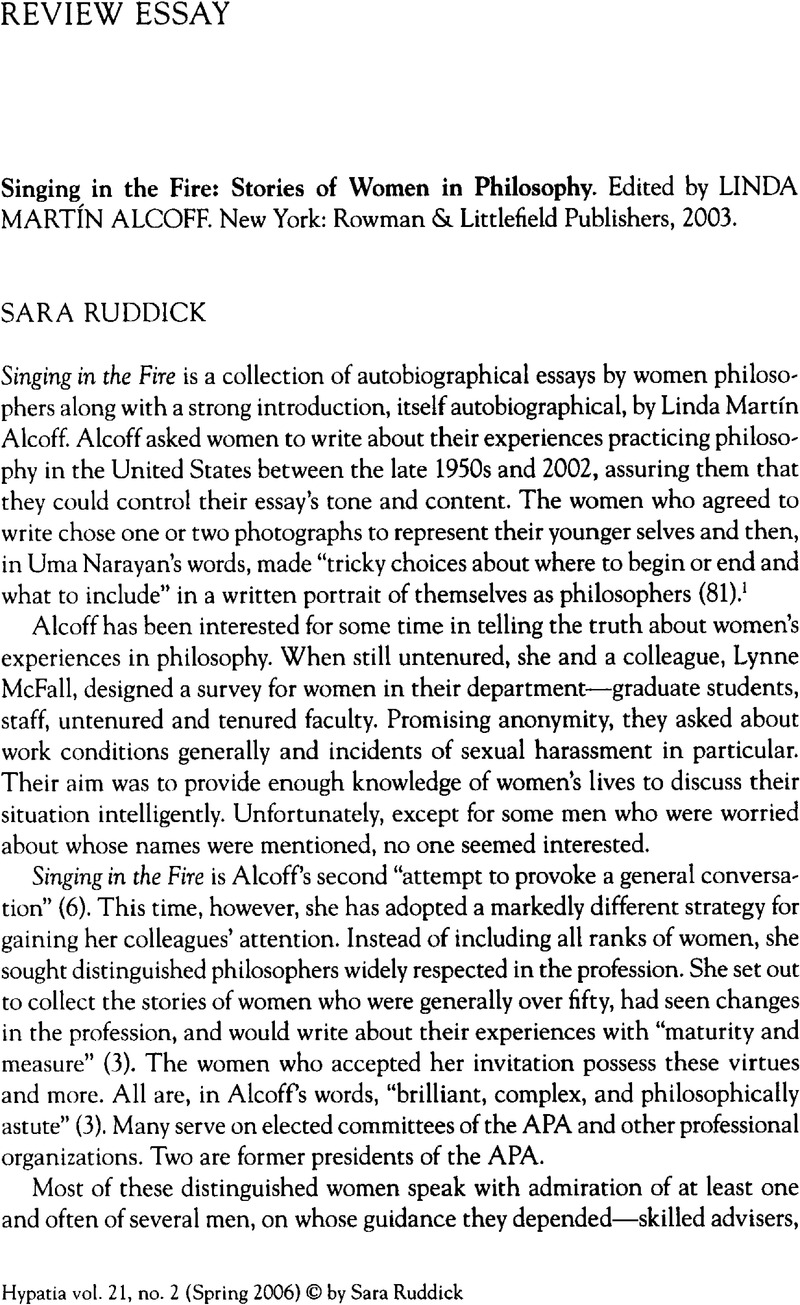No CrossRef data available.
Article contents
REVIEW ESSAY
Review products
Published online by Cambridge University Press: 25 March 2020
Abstract

- Type
- Review Essay
- Information
- Copyright
- Copyright © 2006 by Hypatia, Inc.
References
Notes
1 The contributors to Singing in the Fire are well known and I know almost all of them through their writing, casual acquaintance, or friendship. After some Googling and gossip, I decided to let these pieces stand as the authors carefully, and often with some courage, crafted them. I take the authors at their word and respect their “tricky choices” about what to include and exclude. I only occasionally and briefly refer to anyone's philosophical work. There was no way in a review essay that I could begin to do justice to the work of these women.
2 I have taken examples from Bartky, Brennan, Shrader-Frechette, Held, and Warren. However I have not tried to use their words precisely and therefore do not cite specific textual references. In this passage, the claims I make about the treatment of women is borne up, and in some instances triggered, by my own experience.
3 I use the adjectival phrase of color because Narayan does. I recognize that this is controversial.
4 This is largely a heteronormative book, yet it barely touches upon the many heterosexual relationships with Great Men and ordinary fellows that affect women in professions, including those who live primarily lesbian lives.
5 Schutte's passionate denunciation (129) of analytic philosophy translates easily into rage at forces that silence thought and feeling in the name of proper argument.


